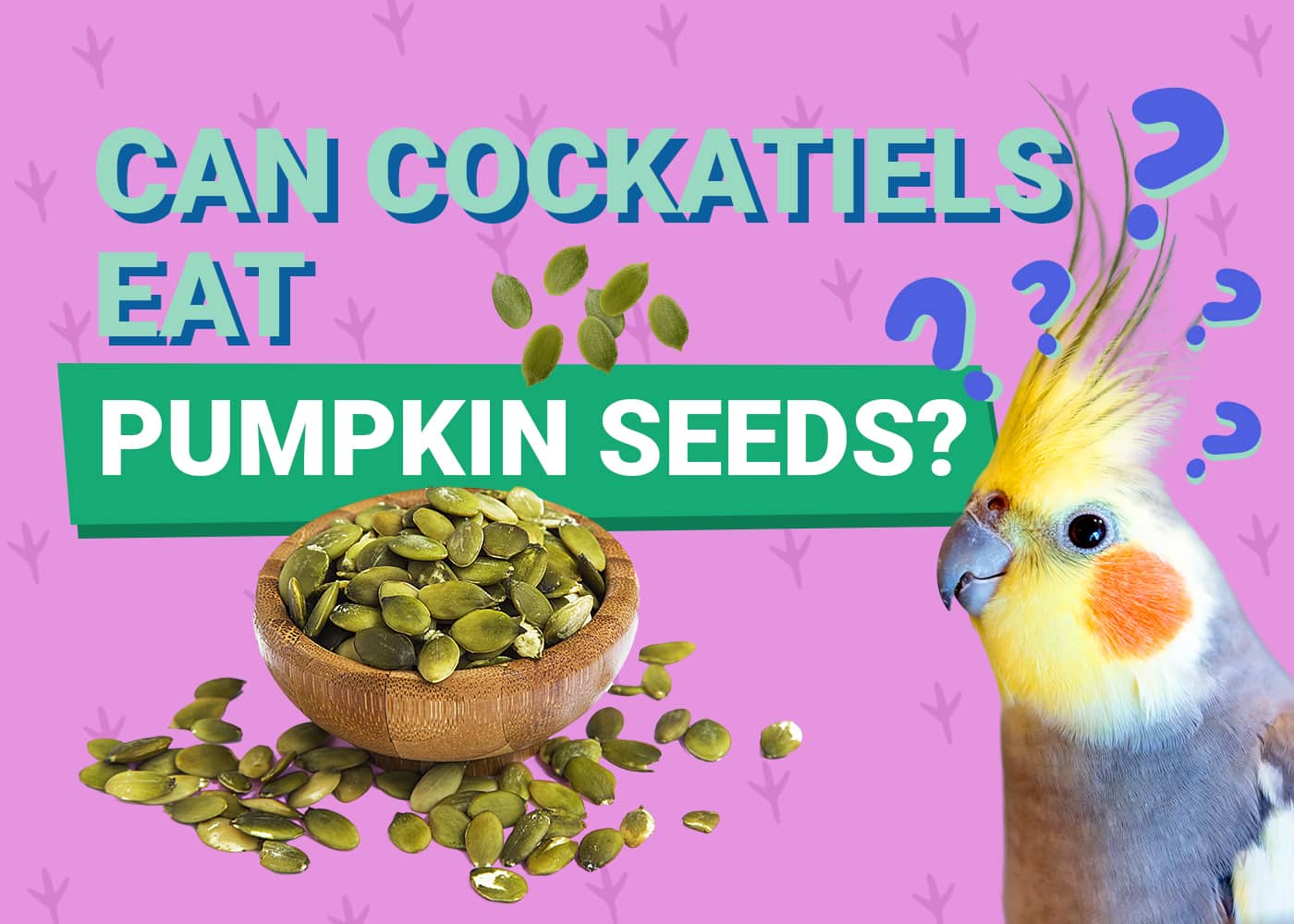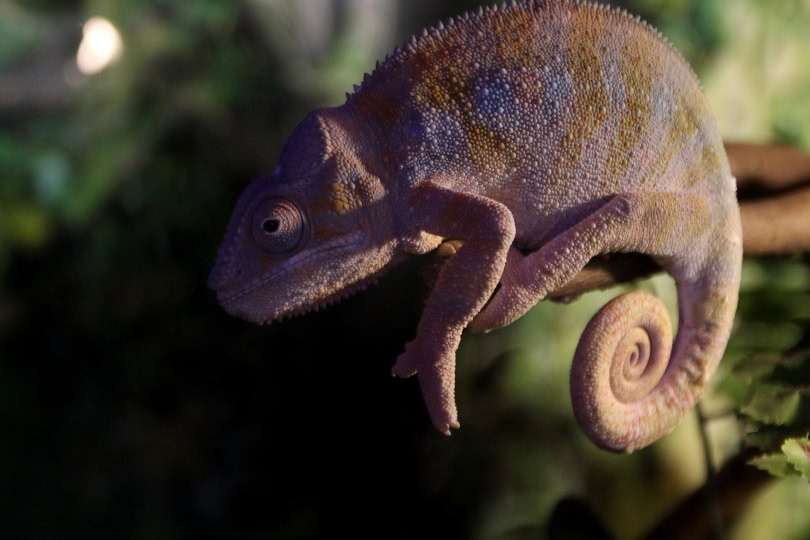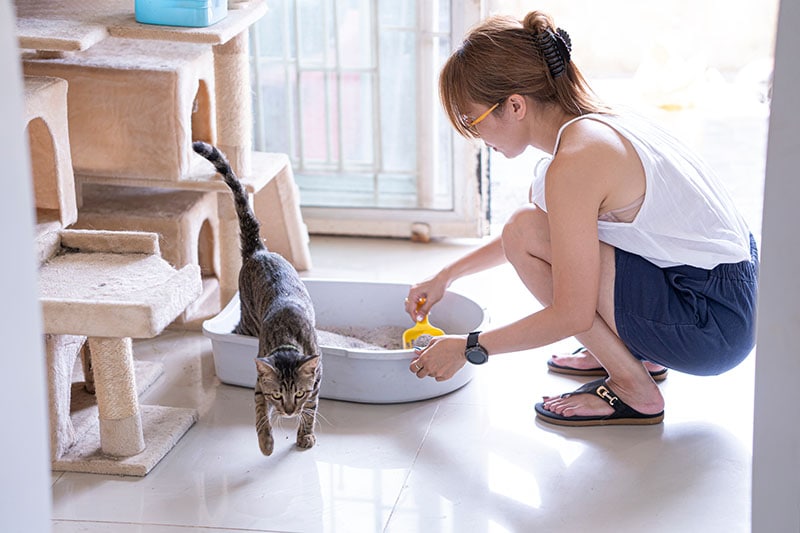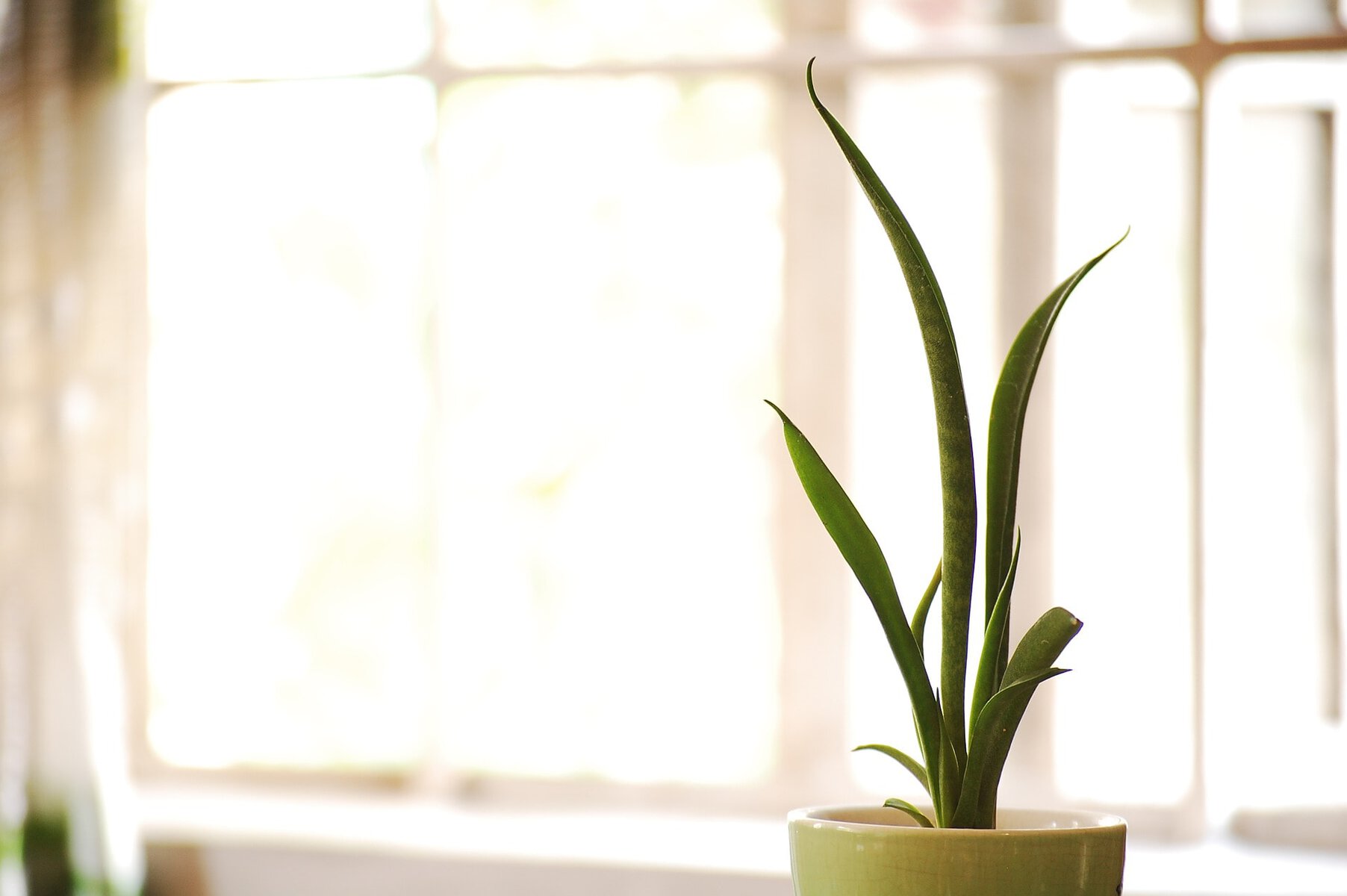VET APPROVED

The information is current and up-to-date in accordance with the latest veterinarian research.
Learn more »Click to Skip Ahead
Pumpkin seeds are a favorite snack among humans, and many people wonder if it’s safe to give them to their pet cockatiels as well. So, can cockatiels eat pumpkin seeds? The short answer is that while pumpkin seeds are safe for cockatiels, they should only be offered sparingly, as they’re quite unhealthy for pet cockatiels in excess.
Keep reading while we look at the nutritional value, the difference between cooked and uncooked seeds, and how many are safe to eat so you can make an informed decision.

Pumpkin Seed Nutritional Information
Pumpkin seeds are mostly fat, and as such, they’re very nutrient-dense.
- Total Energy: 574 kcal
- Water: 2.03 grams (g)
- Carbohydrates: 14.71 g
- Protein: 29.84 g
- Fat: 49.05 g
The measurements above are also the same in terms of percentage, as the total weight of the dataset above is 100 grams. It’s safe to assume that pumpkin seeds are over 49% (close to half) fat.
Regarding minerals, pumpkin seeds are very high in phosphorus, followed by potassium and magnesium. Notably, they are very low in calcium, and therefore, they would be considered unhealthy for cockatiels in high amounts because they would throw off their mineral balance. More on this shortly.
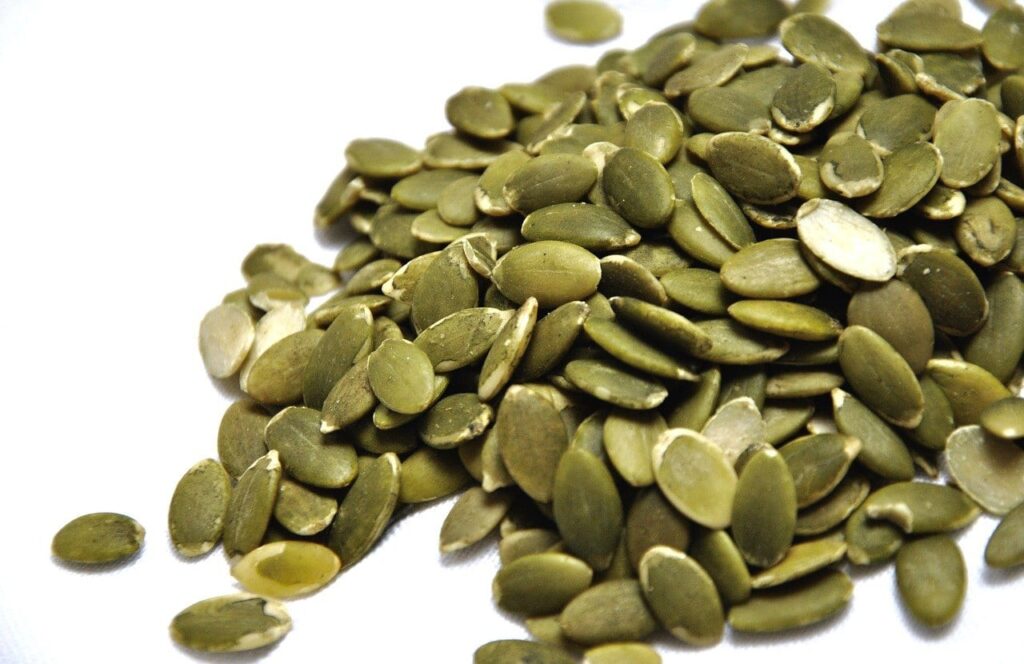
Can Cockatiels Eat Pumpkin Seeds?
Pumpkin seeds are not toxic to your cockatiel. However, they are very high in fats (like all other seeds). This makes them quite unhealthy for cockatiels kept as pets. One major pitfall of pet parrot ownership is that many owners assume their pets should have a diet similar to their wild counterparts. There are several reasons why this logic doesn’t work when it comes to pumpkin seeds.
- Though wild cockatiels are primarily seed eaters (granivores), they fly hundreds of miles every day in search of food. Their exercise levels justify their diet as wild animals.
- A wild cockatiel doesn’t have a constant supply of the same type of seeds. Wild cockatiels have a highly varied diet, which may consist of more than 60 types of seeds.
- A wild cockatiel’s purpose is essentially to reproduce as much as possible. Being in “survival mode,” their diet is justified. The life of a pet is considerably different from that of a wild cockatiel, and we should factor in their long-term health when it comes to what we feed them.
- Hypothetically, even if your pet received the same amount of exercise as a wild cockatiel, pumpkin seeds wouldn’t be appropriate for them. Pumpkins are native to North America, whereas cockatiels are native to Australia.
In addition to the factors mentioned above, it’s also important to note that pet cockatiels aren’t great at regulating their food intake or dietary choices. If given a choice of foods, they are prone to cherry-picking their favorites. This can quickly lead to a fat bird consuming only their favorite foods.
The mineral content of pumpkin seeds is also interesting. Minerals always play off each other, and it’s very important to ensure they’re in the correct ratios in your pet’s diet, not just the right absolute amounts.
For most pet birds that aren’t reproducing, the recommended calcium-to-phosphorus ratio is 2:1. This means calcium should be twice as abundant in their diet as phosphorus. This isn’t the case with pumpkin seeds; they contain around a staggering 23 times as much phosphorus as calcium!
Your bird’s body will try to compensate for the high phosphorus in their diet by releasing stored calcium from their bones to bind with the free, unbound phosphorus in their bloodstream. Over time, this can lead to bone deformities, stunting, and other metabolic issues.
Because of these reasons, pumpkin seeds should only be offered to your bird sparingly—ideally as an occasional treat.
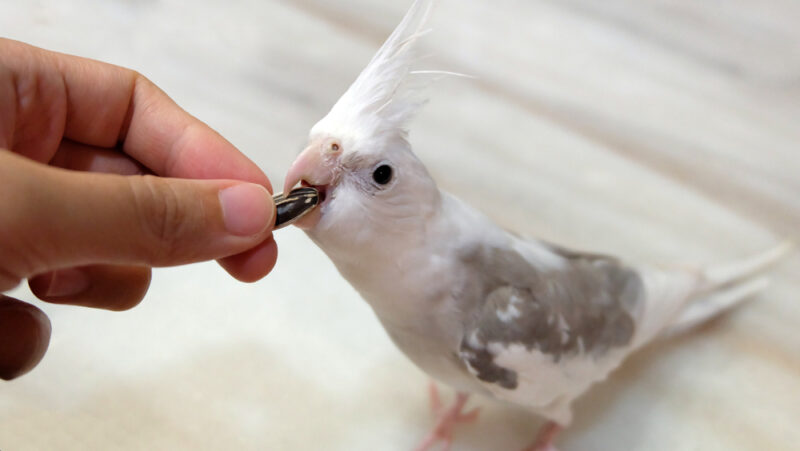
Are Pumpkin Seeds Good for My Cockatiel?
Cockatiels that enjoy pumpkin seeds might enjoy the enrichment the seed provides them. There’s also no denying the energy content of these seeds.
However, they are generally unhealthy for cockatiels. In very niche circumstances, seeds can be beneficial for a cockatiel. For example, a malnourished cockatiel might benefit from a moderately high level of seeds in their diet for a short period of time.
Then again, such a diet should not be composed solely of pumpkin seeds since it could lead to other issues. In addition, such dietary modifications and restrictions should only be implemented under the instruction of a vet because cockatiels can quickly form habits of showing a bias toward one seed type over another.
Feeding your cockatiels the wrong mixture of seeds can be dangerous to their health, so we recommend checking with an expert resource like The Ultimate Guide to Cockatiels, available on Amazon.
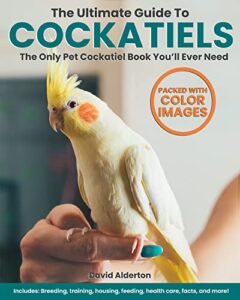
This excellent book will help you balance your cockatiels’ food sources by understanding the value of different seed types, dietary supplements, fruits and vegetables, and cuttlebone. You’ll also find tips on everything from housing to health care!
How Should I Feed Pumpkin Seeds to My Cockatiel?
Pumpkin seeds are best used as supplements or occasional treats to your cockatiel’s diet. Seeds should form a very small portion of your pet’s diet (around 10% at most). This 10% shouldn’t consist of just pumpkin seeds. Variety is key, and limiting your cockatiel’s pumpkin seeds to one or two daily is often sufficient.
Cockatiels can eat shelled or unshelled pumpkin seeds. However, they shouldn’t be offered salted, seasoned, or flavored seeds. Seeds offered to your pet should be offered raw.
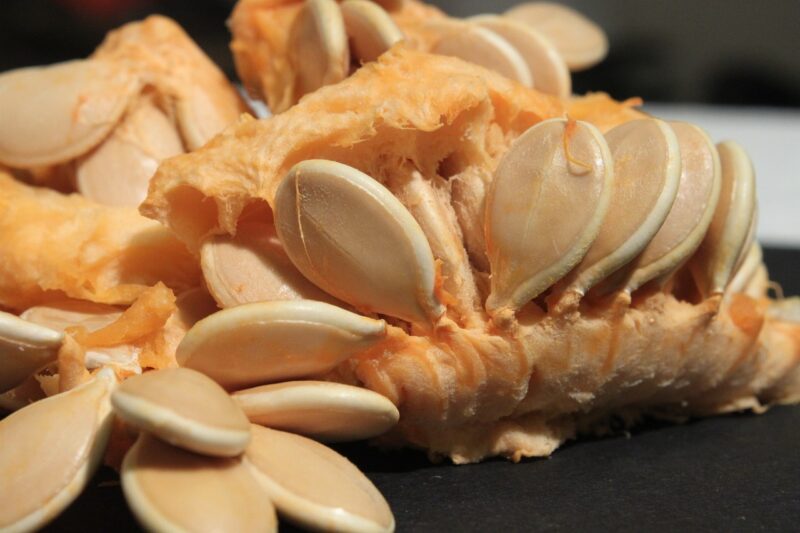

Conclusion
Cockatiels can eat pumpkin seeds, but only in moderation. Like all seeds, they are very high in fat and, therefore, aren’t considered nutritionally appropriate for them in high amounts. They can be added to your pet’s diet in moderation to provide a balanced diet or as a treat. However, they shouldn’t constitute a majority of your cockatiel’s diet.
Featured Image Credit: Susana Martins, Pixabay
